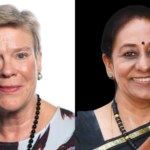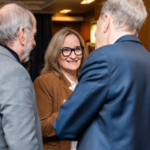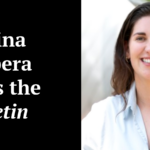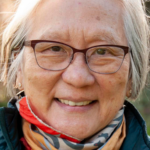 Part of the Bulletin‘s Next Generation initiative, the Voices of Tomorrow program was created to ensure that new voices, steeped in science and public policy, have a trusted platform from which to address the world’s existential challenges. The capstone of the initiative is the Leonard M. Rieser Award, selected each December by the Bulletin’s editorial team from among the year’s Voices of Tomorrow submissions.Tell the rising scholars in your life about the program; we’d love to hear from them! Part of the Bulletin‘s Next Generation initiative, the Voices of Tomorrow program was created to ensure that new voices, steeped in science and public policy, have a trusted platform from which to address the world’s existential challenges. The capstone of the initiative is the Leonard M. Rieser Award, selected each December by the Bulletin’s editorial team from among the year’s Voices of Tomorrow submissions.Tell the rising scholars in your life about the program; we’d love to hear from them!
 Particle physicist Dr. Yangyang Cheng received the 2017 Rieser Award for her essay “Let science be science again.” She is an LHC Physics Center Distinguished Researcher at Fermi National Accelerator Laboratory, and a postdoctoral research associate at Cornell University. Cheng is also a tireless advocate for science funding and support, lobbying on Capitol Hill and participating in numerous Bulletin events, including the upcoming Annual Dinner in November. Since being published in the Bulletin, Cheng’s writings have appeared in Foreign Policy, Teen Vogue, Foreign Affairs, and other publications. She contributes regularly to New America’s DigiChina initiative, and has been interviewed by WBEZ Chicago Public Radio,South China Morning Post, Spektrum.de (the German edition of Scientific American) and other media outlets. Particle physicist Dr. Yangyang Cheng received the 2017 Rieser Award for her essay “Let science be science again.” She is an LHC Physics Center Distinguished Researcher at Fermi National Accelerator Laboratory, and a postdoctoral research associate at Cornell University. Cheng is also a tireless advocate for science funding and support, lobbying on Capitol Hill and participating in numerous Bulletin events, including the upcoming Annual Dinner in November. Since being published in the Bulletin, Cheng’s writings have appeared in Foreign Policy, Teen Vogue, Foreign Affairs, and other publications. She contributes regularly to New America’s DigiChina initiative, and has been interviewed by WBEZ Chicago Public Radio,South China Morning Post, Spektrum.de (the German edition of Scientific American) and other media outlets.
 Grassroots activist Nikita Perumal received the 2016 Rieser Award for her essay “The value in activism: Reflections from the Columbia University climate sit-in.” A native of Kentucky, Perumal returned to her home state to work as an organizing apprentice with Kentuckians for the Commonwealth, a grassroots social justice organization. She is a 2016 graduate of the Dual BA Program between Columbia University and Sciences Po, where she received degrees in Human Rights and Political Science. Perumal participated in the Humanity in Action John Lewis Fellowship for civil and human rights and organized with Columbia Divest for Climate Justice. She spent a year on the Pacific island nation of Vanuatu, where she completed a Fulbright research grant on community participation in responses to climate change. Grassroots activist Nikita Perumal received the 2016 Rieser Award for her essay “The value in activism: Reflections from the Columbia University climate sit-in.” A native of Kentucky, Perumal returned to her home state to work as an organizing apprentice with Kentuckians for the Commonwealth, a grassroots social justice organization. She is a 2016 graduate of the Dual BA Program between Columbia University and Sciences Po, where she received degrees in Human Rights and Political Science. Perumal participated in the Humanity in Action John Lewis Fellowship for civil and human rights and organized with Columbia Divest for Climate Justice. She spent a year on the Pacific island nation of Vanuatu, where she completed a Fulbright research grant on community participation in responses to climate change.
 Dr. Moritz Kütt received the 2015 Rieser Award for his essay “Arms-control lessons from the Volkswagen scandal.” He joined Princeton University’s Program on Science and Global Securityas a Postdoctoral Research Associate in Fall 2017 after receiving a PhD in physics (2016) from the Technische Universität Darmstadt, Germany. His dissertation developed new open source software tools for nuclear arms control applications. His current research includes new nuclear warhead verification technologies, the application of virtual reality, robotics, and vintage computing for arms control and disarmament, societal verification, and on a broader scale the role of access and classification of information for the verification of the Treaty on the Prohibition of Nuclear Weapons. Dr. Moritz Kütt received the 2015 Rieser Award for his essay “Arms-control lessons from the Volkswagen scandal.” He joined Princeton University’s Program on Science and Global Securityas a Postdoctoral Research Associate in Fall 2017 after receiving a PhD in physics (2016) from the Technische Universität Darmstadt, Germany. His dissertation developed new open source software tools for nuclear arms control applications. His current research includes new nuclear warhead verification technologies, the application of virtual reality, robotics, and vintage computing for arms control and disarmament, societal verification, and on a broader scale the role of access and classification of information for the verification of the Treaty on the Prohibition of Nuclear Weapons.
Are you counting on future generations to continue the Bulletin‘s important work?You can support the Voices of Tomorrow and our other Next Generation initiatives by making a gift today.
For assistance, please contact our Gift Officer at [email protected] or 773.834.2308. |
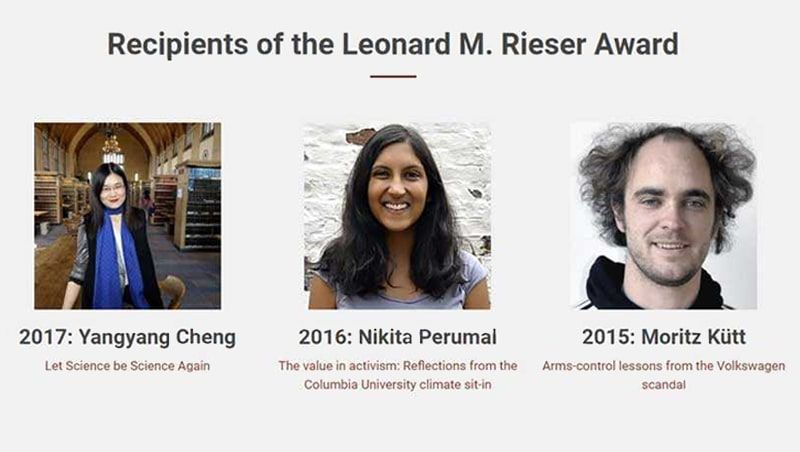
 Part of the Bulletin‘s Next Generation initiative, the Voices of Tomorrow program was created to ensure that new voices, steeped in science and public policy, have a trusted platform from which to address the world’s existential challenges. The capstone of the initiative is the Leonard M. Rieser Award, selected each December by the Bulletin’s editorial team from among the year’s Voices of Tomorrow submissions.Tell the rising scholars in your life about the program; we’d love to hear from them!
Part of the Bulletin‘s Next Generation initiative, the Voices of Tomorrow program was created to ensure that new voices, steeped in science and public policy, have a trusted platform from which to address the world’s existential challenges. The capstone of the initiative is the Leonard M. Rieser Award, selected each December by the Bulletin’s editorial team from among the year’s Voices of Tomorrow submissions.Tell the rising scholars in your life about the program; we’d love to hear from them!
 Particle physicist Dr. Yangyang Cheng received the 2017 Rieser Award for her essay
Particle physicist Dr. Yangyang Cheng received the 2017 Rieser Award for her essay  Grassroots activist Nikita Perumal received the 2016 Rieser Award for her essay
Grassroots activist Nikita Perumal received the 2016 Rieser Award for her essay 
